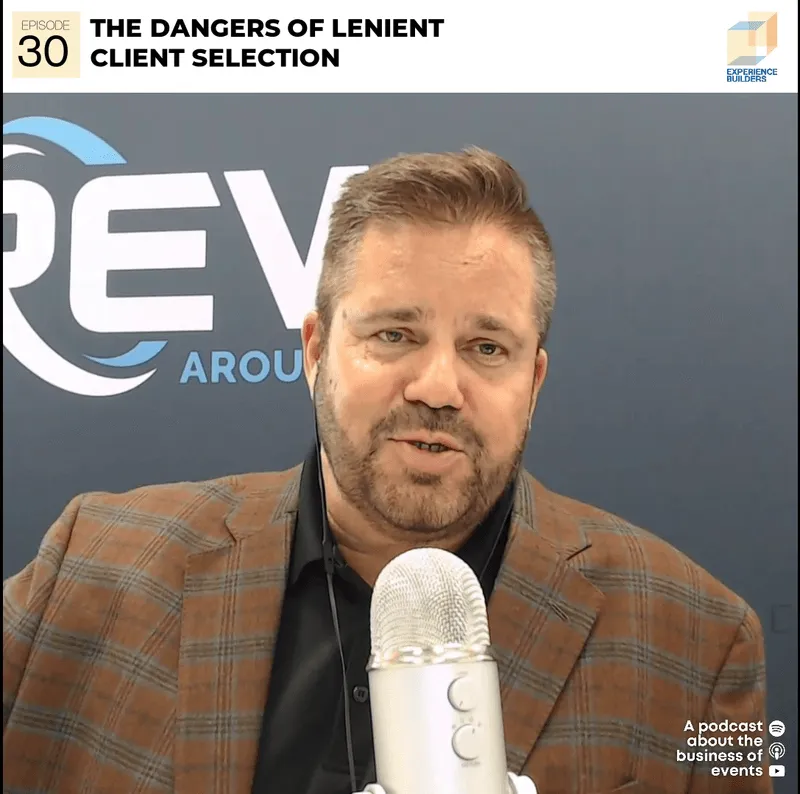If you lose some money, you typically can make it back. If you lose your phone or your wallet, most of the contents can be replaced. Even if you lose a key employee, they, too, can be replaced. There is one thing in life that is not possible to replace once lost: your time.
In this case, I’m talking about the time we spend talking to and trying to convince a prospect to become a client. Considering the buyer’s market that continues to persist as we come out of the Great Recession, we seem to have grown accustomed to treating prospects better than they deserve. That may sound kind of harsh, but maybe not.
Consider this scenario: A prospect invites you to respond to their request for proposal along with several other competitors. You have an initial phone conversation and then are invited to a capabilities presentation at their location. Following this meeting, you proceed to conceptual design and estimating. You present your concepts in a second meeting. You then proceed to final design presentations and a formal quote, which are then delivered to the prospects’ executive management in a third meeting.
How much time have you invested so far? Time for research prior to design, time for the designer, the estimator and perhaps a number of other employees – project managers, account managers, production managers – all working to prepare the proposal. Potentially hundreds of man-hours. And then there are the travel costs for the meetings and any costs to produce the presentation.
And what if the initial concepts are not exactly to their liking and you return with a second round? And then the budget mysteriously becomes lower, you must go back to redesign to fit a lower budget and give another quote using different materials.
What’s happening here?
You have given your prospect a license to steal. To steal your time. To steal your staff’s time. When you relinquish control of your time to the prospect, he now has your approval to use your time until he decides you have performed well enough to deserve his business.
And steal he will. He will ask you for more concepts, more pricing options and more meetings with more of his team. You have empowered him to take your time for as long as you willingly give it away. This may be for a week, a month or even over the course of a year. And he does not care if it takes 20, 40 or 100 hours of your life. Why should he care? He’s not a bad guy. You handed him a license to steal your time until you either convert him to a client or he hires the other guy.
How many professions do you know that give away so much time before any kind of commitment is made? Is the reason we do this because we have been conditioned by the industry we are in and it is the way we have always performed? Is it because, historically, we are an industry of “builders” and we have always been paid only for what we build and not all the time and effort to get to the build?
I think we’re missing a valuable point: we are an industry of trade show experts. Why should we not have the right to sell our expertise in the design and budgeting phases of these projects, not to mention the marketing aspects of tradeshows and events? As far as I know, it is not written anywhere that we have to give away this expertise so that we can get paid for being the builder.
What if we spent more time in the very first meetings with prospects explaining our expertise, the design process and our fees for responding to their request for proposal? What if we had an “engagement agreement” the client signed at the very beginning so they understood the value of the design and budgeting process and the amount of time it would require?
I don’t know any architects who will take the time to design and price my next home before I formally have engaged them. Some of the exhibits we design and build cost as much or more than a new home. Why are we spending so much time doing all of this free designing and budgeting? I think we’re allowing ourselves to be robbed.
See you on the show floor.
Jim Obermeyer has been in the tradeshow industry 30 years, both as a corporate tradeshow manager and exhibit house executive. He is a partner in the tradeshow and event-marketing firm Reveal. He can be reached at jobermeyer@revealexhibits.com.































